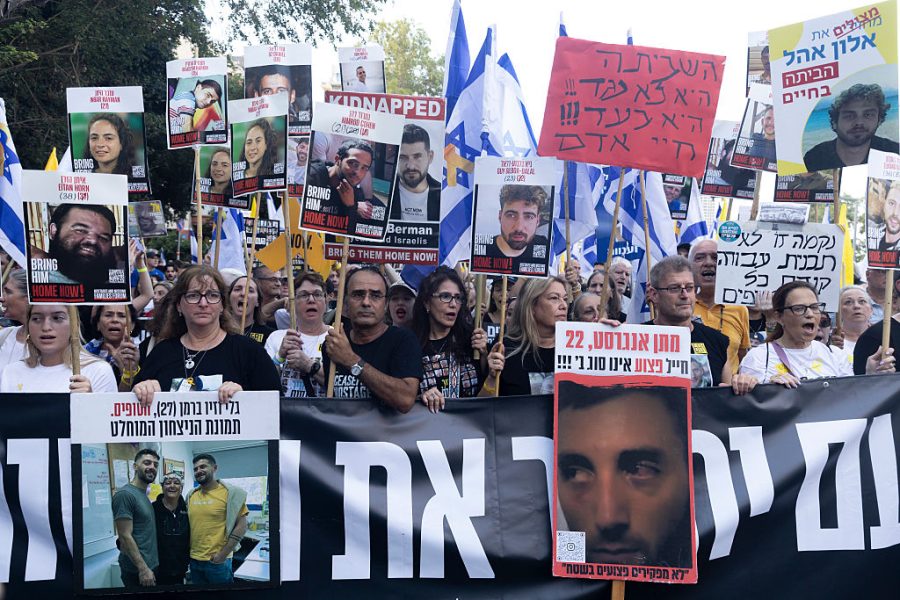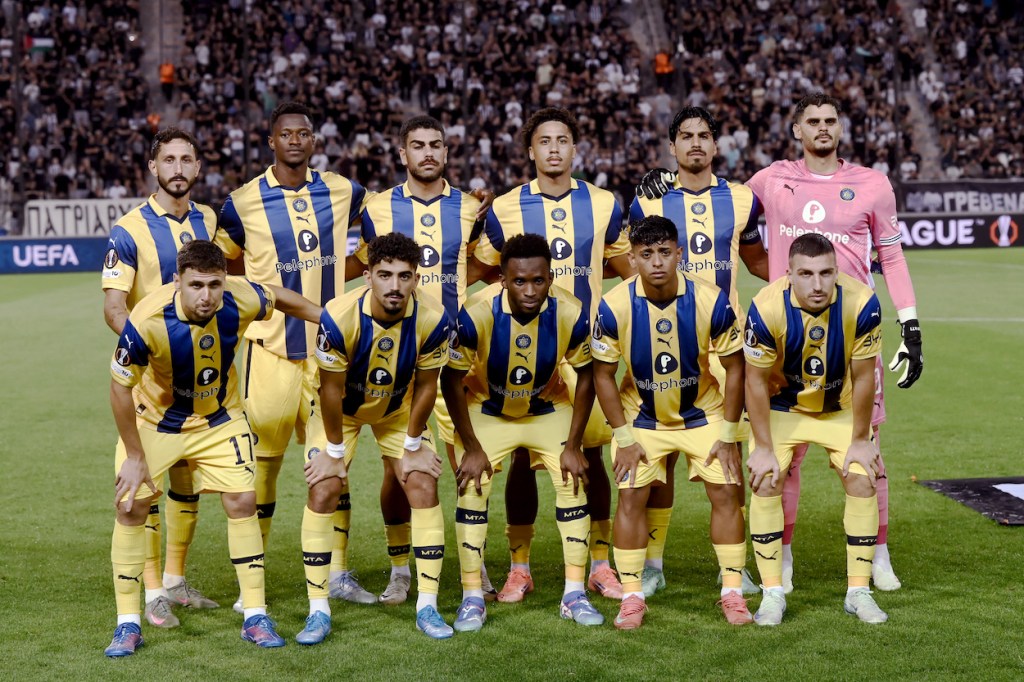Israel is caught in a tragic paradox: the finest qualities that define its national character – its compassion, solidarity, and moral responsibility – are exploited by adversaries who recognise in these virtues not strength, but vulnerability. As over half a million Israelis joined a nationwide strike yesterday, demanding a ceasefire and the return of hostages from Gaza, it was impossible not to be moved by the depth of feeling, the urgency of the appeals, and the sheer moral weight of the demand. Yet what moves one side to tears hardens the heart of the other, moving them to ruthless calculation. The protests are genuine, justified, and born of unbearable grief, but to Hamas they are confirmation that its strategy is working.
For nearly 700 days, hostages have languished in tunnels beneath Gaza, held by a group that has no humanitarian interest in their fate. The Israeli families who protest for their return are not protesting because they are weak, but because they care.
Hamas has no intention of returning the hostages simply out of pity or moral appeal
That is the unbearable truth of the dilemma: love, in the hands of a cynical enemy, becomes a lever. And over and over again, when Israel shows signs of internal dissent, Hamas hardens its position. In November 2023, May 2024, and again in early 2025, the group escalated its demands or walked away from negotiations whenever it sensed either international pressure on Israel or domestic fracture within it. Each protest, each demonstration, is interpreted not as a plea to save the hostages but as a signal to Hamas that it need not concede. The more Israelis protest, the more its enemies are taught to take hostages in future.
That this distortion exists is not a reason to suppress protest, but it is a reason to understand its consequences. In a different world, the moral clarity of the protesters would move international actors to increase pressure on Hamas. In our world, the images feed into a narrative of Israeli weakness, not Hamas culpability. The tragic result is that a natural democratic process becomes, in enemy hands, a psychological weapon. That is not the fault of the protesters. But it is a risk to be managed.
The Israeli government, meanwhile, has failed to manage that risk. Rather than embracing hostage families with empathy and unity, key ministers chose alienation and suspicion. Netanyahu accused them of helping Hamas. Finance Minister Smotrich claimed they were ‘burying hostages in tunnels’. The rhetoric has been vicious, contemptuous, and politically self-destructive. By treating desperate families as political enemies, the government abandoned its most basic duty: to bind the nation together in a time of war. In doing so, it squandered the moral high ground without gaining any strategic advantage.
And yet, the government is not wrong about Hamas. Hamas has no intention of returning the hostages simply out of pity or moral appeal. It never did. Its entire logic is predicated on holding leverage, preserving its arsenal, and remaining in power. That is why the core dilemma remains unresolved: Hamas will not release the hostages unless it can claim victory. But releasing them on such terms would strengthen Hamas, vindicate 7 October, and endanger Israel’s future. This is the trap.
And it is a trap with no obvious exit. The government cannot simply acquiesce to protesters’ demands, not because it is heartless, but because no act of goodwill or political will can unilaterally extract hostages from Hamas tunnels. Even the most far-reaching Israeli concessions would not guarantee the return of all those still held. At best, they would secure partial releases under conditions amounting to a political defeat. At worst, they would signal capitulation while yielding nothing. Everyone understands this, including, deep down, the protesters. The demonstrations are not naïve demands for the impossible. They are desperate expressions of anguish from a people that has no other way to cry out in public.
To some extent, then, the protests are performative. Not in the sense of being disingenuous, but in the older sense of ritual: an enactment of grief, of outrage, of helpless love. They are how a free society resists despair. But they are also how it exposes itself. Protest in Israel is sacred. It is also, in this war, a signal, seen by the enemy not as a cry for justice, but as a confirmation of weakness. What is read internally as moral courage is interpreted externally as operational restraint. What is, domestically, a sign of vitality becomes, in the eyes of Hamas and its sympathisers, evidence of vulnerability.
This dissonance is not a theoretical concern. Throughout the war, Arab media outlets, foremost among them Al Jazeera, have framed internal Israeli protests as proof that Hamas is winning. For them, every sign of dissent in Israel is not an indictment of Hamas’s cruelty but a validation of its strategy. A democratic protest is presented as a referendum on defeat. Israel’s soul-searching becomes, in translation, self-destruction. The tragedy is not that Israelis protest, but that their most authentic expressions of democratic anguish are perceived by their enemies as weapons of psychological warfare. And in that perception, those expressions do become weapons, though not the ones the protesters intend.
That is why, amid the cries for release, a different voice has also emerged. The Tikvah Families Forum, a group of hostage families aligned more closely with the government, issued an open letter calling for national resilience, denouncing those who, in their view, weakened Israel’s posture during war. Their message was not a dismissal of grief but a warning against its misdirection. In their eyes, strength lies not in protest but in perseverance. Their stance reflects a genuine moral and strategic fear: that the country’s emotional power might become its strategic undoing. What remains is a performance of loyalty, anger, and love, enacted in the full knowledge that it may change little on the ground, but affirms something essential about who they are.
But that affirmation comes at a cost. Hamas is watching. And the more it sees Israel in torment, the more it believes it can outlast, outmanoeuvre, and outbleed its enemy. To resist this requires not silence but awareness. Israel alone may not be able to escape this trap. The international community, so quick to find fault with Israel, should redirect its moral clarity toward those who hold civilians underground while demanding immunity above.
Israel fights with its heart exposed. That is its glory – and its danger.








Comments